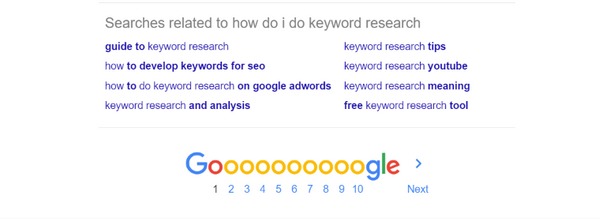Hey! Welcome back to our blog series on keyword research! If you haven’t yet read our previous installments, it’s important you do so or else you’ll be missing some crucial information and advice! Click on the following links to complete your education:
Part 1: What is Keyword Research?
Part 2: How search volume and competition can help you get ranked
Part 3: KEI: Keyword efficiency index and how it can help you rank?
While it might seem to web marketers that Google is out to trip them up by making their previously tried-and-tested SEO strategies redundant, this is really not the case. In fact, Google provides an abundance of valuable information and tools that can help you identify relevant keywords and phrases. “Autocomplete” and Google’s suggestions for related searches are the two first steps on any quest for the best keywords.
So how do I start doing my keyword research using Google?
Open up a web browser and go to www.Google.com. Now start typing the search query “how do I do keyword research,” but stop short of completing that phrase and see what Google predicts you’re looking for. You should see something along the lines of the following:

This autocomplete function is a really great place to start when looking for longtail keywords that are relevant to your products, services, business and industry. These suggestions are similar keywords and phrases that have also been searched for, which is why Google is putting them forward.
But wait, there’s more!
If you then scroll down to the bottom of the search results page, you will find some great keyword suggestions under the headline “Related Searches”:

Here’s an industry insight: Everyone in the SEO game starts with Google’s autocomplete, but this is just the first step. Once you’ve jotted down a list of anywhere between 10 – 100 keywords and phrases (depending on the size and scope of your business and budget), you will need to consider the following before you assume you’ve done your job:
- How many people are searching for these keywords per month?
- How competitive are these keywords?
- #1 and #2 combined: What is your chosen keyword’s KEI?
- What is the difficulty rating? In other words, how hard will it be to get your site ranking for this keyword?
- ARE there any opportunities that my competitors have missed?
More importantly, how the heck are you supposed to deduce these metrics? Never fear, that’s why you’re reading the Ultimate Guide to Keyword Research!
Want to learn more? Click Here to check out our Ultimate Guide To Keyword Research – it’s FREE and contains the A-Z of advice on putting together a killer list of keywords that’ll drive unprecedented volumes of traffic to your website.
